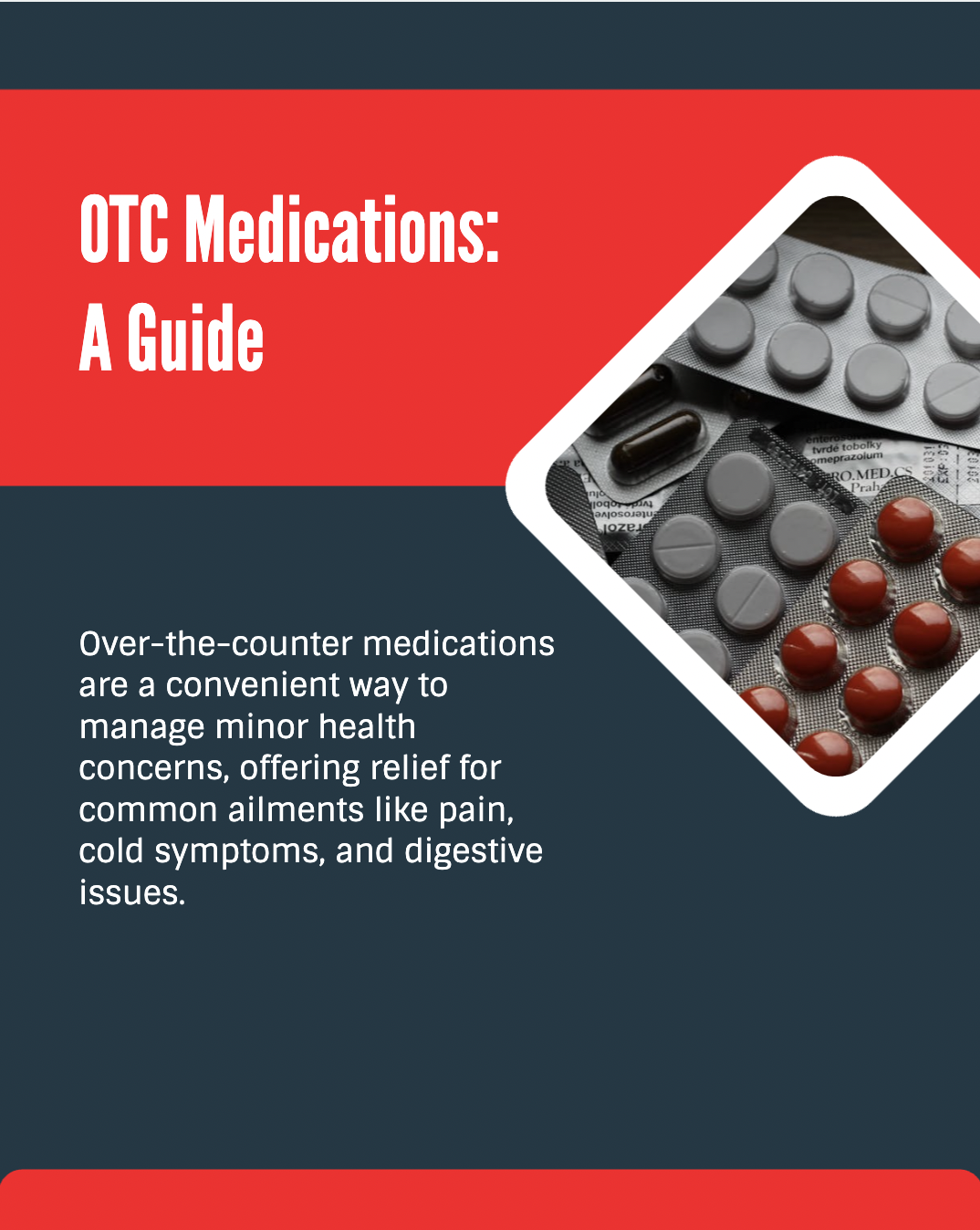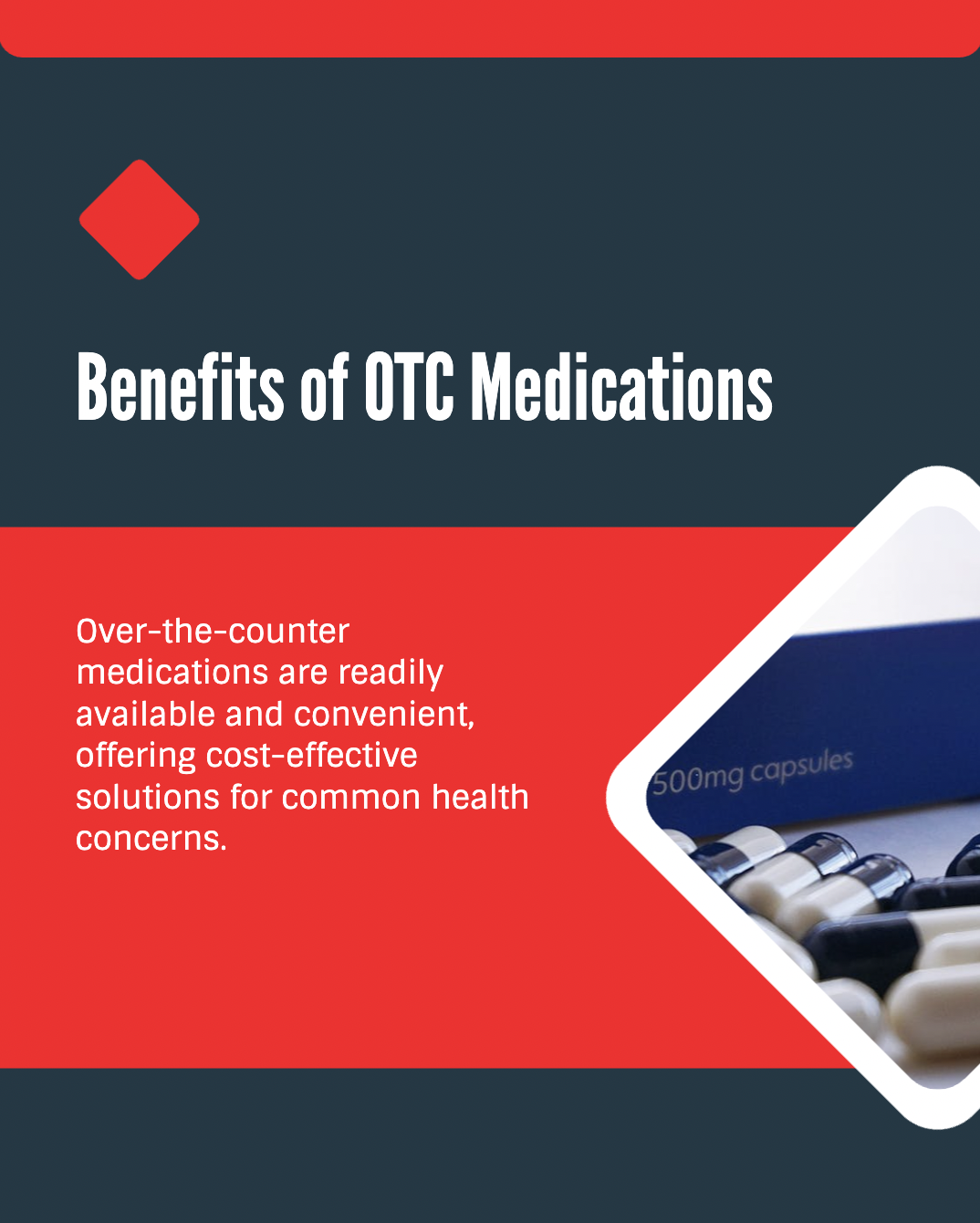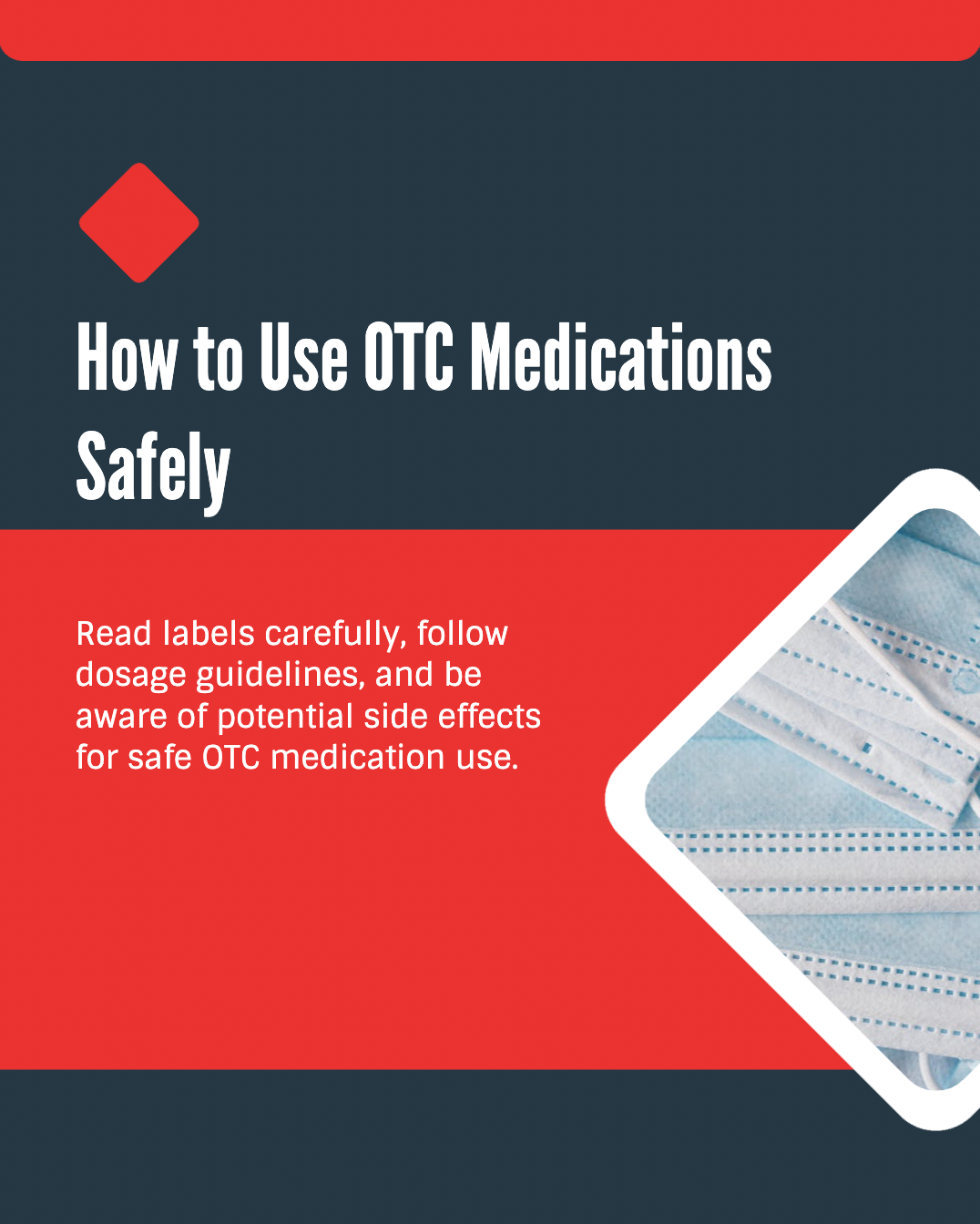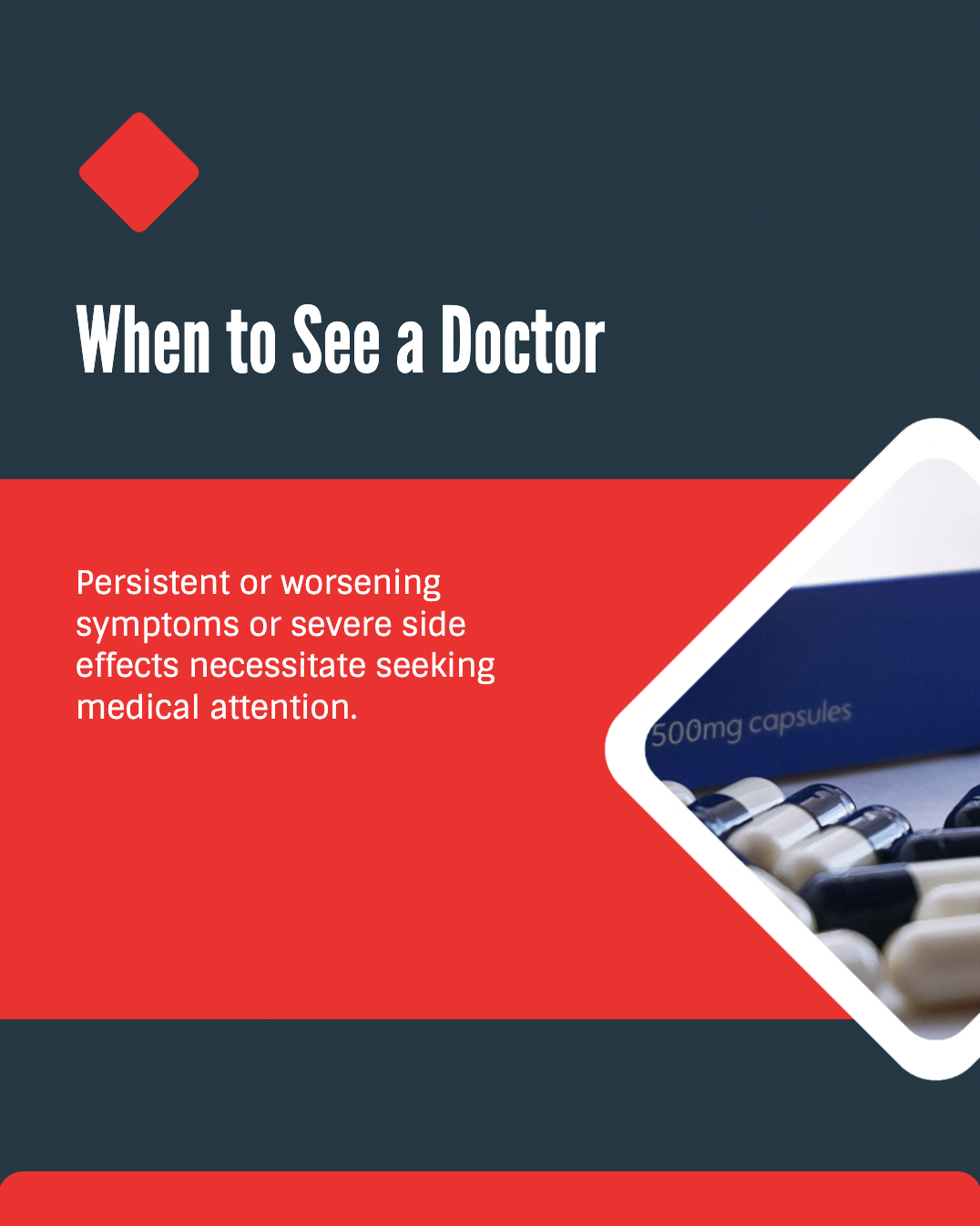Over-the-counter (OTC) medications play a crucial role in managing everyday health concerns. These readily available remedies can address a wide range of issues, from minor aches to common cold symptoms. In this article, we explore the essentials of OTC medications, including their benefits, potential risks, and how to use them responsibly.

What Are Over-the-Counter Medications?
OTC medications are drugs that can be purchased without a prescription from a healthcare professional. They are approved by regulatory authorities, such as the U.S. Food and Drug Administration (FDA), European Medicines Agency (EMA) or other national-level authorities for safe and effective use with or without a doctor’s supervision when used as directed.
Common Types of OTC Medications

Convenience and Accessibility
OTC medications are available at pharmacies, grocery stores, and online, making them easy to obtain. This accessibility allows people to address minor health issues promptly.
Cost-Effectiveness
Compared to prescription drugs, OTC medications are often more affordable. They help reduce healthcare costs by minimizing unnecessary doctor visits.
Self-Care Empowerment
OTC medications enable individuals to take charge of their health by managing minor ailments without professional intervention.
Potential for Misuse
Taking more than the recommended dose can lead to adverse effects. For example, excessive acetaminophen use may harm the liver.
Drug Interactions
OTC medications can interact with prescription drugs, dietary supplements, or other OTC products, potentially causing harmful effects.
Masking Underlying Conditions
Using OTC medications might temporarily relieve symptoms but delay diagnosis of serious health issues.

Read the Label Carefully
Pay attention to the active ingredients, usage instructions, and warnings on the packaging.
Follow the Dosage Guidelines
It is important to follow the recommended dosage and administration instructions. Taking more than the recommended dose will not necessarily lead to faster relief and can increase the risk of potentially serious adverse effects. Use measuring tools for liquid medications to ensure accuracy.
Be Aware of Side Effects
Some OTC drugs may cause side effects like drowsiness, nausea, or dizziness. If side effects persist or worsen, consult a healthcare provider.
Children
Seniors
Pregnant or Breastfeeding Women
Pain Relievers
Antihistamines
Decongestants
Active Ingredients
This section identifies the therapeutic components in the medication.
Purpose
Indicates what the drug is intended to treat, such as pain, fever, or congestion.
Warnings
Outlines situations where the medication should not be used or when to seek medical advice.
Directions
Provides dosing instructions, including frequency and amount.
Home Remedies
Natural solutions, such as ginger tea for nausea or honey for a cough, can be effective for mild conditions.
Lifestyle Changes
Adopting healthier habits, like regular exercise and a balanced diet, can prevent minor ailments and reduce the need for OTC drugs.

If symptoms persist for more than a few days, worsen, or are accompanied by severe side effects, seek medical attention. Persistent use of OTC medications may indicate an underlying health issue.
Over-the-counter medications provide a convenient and effective way to manage minor health issues, empowering individuals to take charge of their well-being. However, it is essential to use them responsibly, following all instructions and consulting healthcare professionals when needed. By understanding their benefits and risks, we can make informed decisions and ensure safe usage for ourselves and our families.
It depends on the active ingredients. Avoid combining drugs with the same active components to prevent overdosing. Get information from a healthcare provider if not sure.
Review the label and consult a healthcare provider if you have pre-existing conditions or are on other medications.
Yes, generic medications contain the same active ingredients and must meet the same regulatory standards as brand-name versions.
No, children require age-appropriate formulations. Always follow pediatric dosage recommendations.
According to the instructions provided on the label, store them in a cool, dry place, out of reach of children. Avoid exposure to direct sunlight or high humidity.
 30.01.2025
30.01.2025